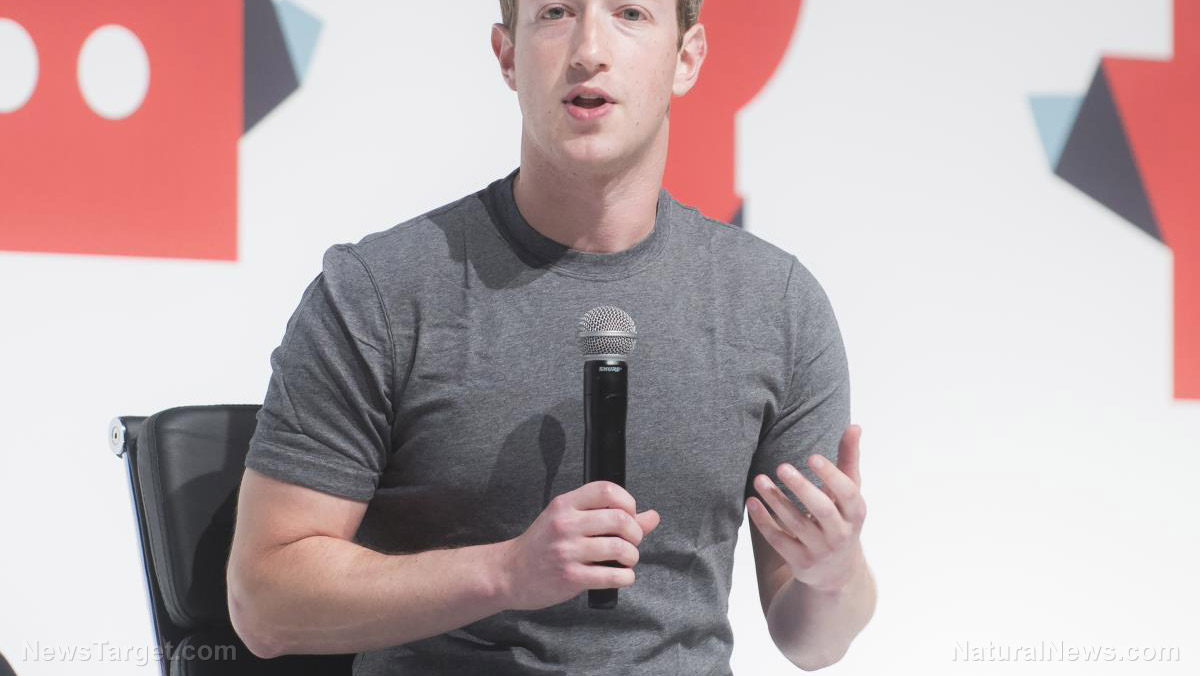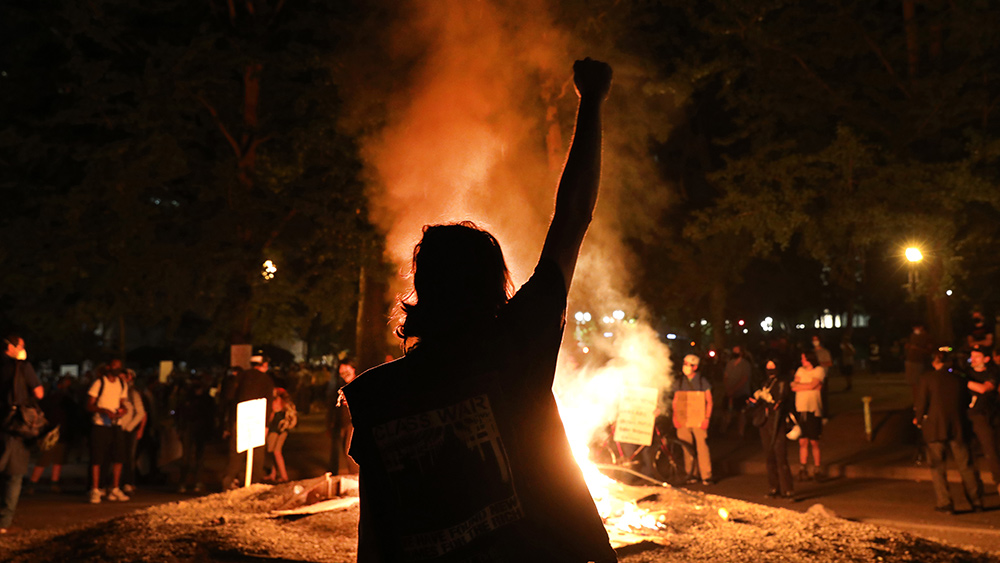Facebook develops tool to let companies censor workers even as it champions free speech
08/07/2020 / By Franz Walker

A new feature that Facebook is looking to add to Workplace, their intranet-style chat and office collaboration app, is raising eyebrows. Should it roll out, it would allow employers to censor certain words and suppress workers’ discussions of certain topics, such as unionization.
The feature was revealed during an internal presentation on Wednesday. According to The Intercept, the presentation discussed how the new feature would allow employers to exert “content control” over certain topics and words trending among employees, using the word “unionize” as an example.
Facebook building censorship tools for employers
The implication that Facebook is building tools that would allow the censorship of employees caused a stir even inside the company. A flurry of posts from Facebook’s own employees denounced the feature, with several commenting in disbelief that the company would overtly mention “unionize” as a topic to be blacklisted.
In response, the company took the presentation down, while issuing a statement that they had paused development of the feature.
“While these kinds of content moderation tools are useful for companies, this example was poorly chosen and should never have been used. The feature was only in early development and we’ve pulled any plans to roll it out while we think through next steps,” a Facebook spokesman told Business Insider.
Meanwhile, in an internal company board, Karandeep Anand, a product manager for Facebook Workplace, apologized for the “unionize” example. Anand stated that “censoring users is not the purpose of this feature and Workplace’s ambition is to give everyone a voice, while maintaining a respectful work environment.”
Anand added that the use of the terms came more from “lack of context versus bad intent from anyone on the team.”
Facebook supports censorship while claiming to be against it
The incident is the latest example of Facebook’s two-faced approach when it comes to censorship.
On the outside, the company tries to portray itself as a champion of free speech, refusing to touch posts that rival platforms would have taken down. Most recently, founder Mark Zuckerberg stood by his decision to let a post by President Donald Trump stand, despite a number of scientists calling it misleading.
Zuckerberg and his wife, Priscilla Chan, defended the decision even as 143 scientists funded by their own Chan Zuckerberg Initiative called on them to take the posts down.
“We will continue to stand for giving everyone a voice and erring on the side of free expression in these difficult decisions – even when it’s speech we strongly and viscerally disagree with,” Zuckerberg said a Facebook post.
However, Zuckerberg’s words have often not lined up with his company’s actions. Despite leaving Trump’s posts up, Facebook has gone out of its way to censor posts and even outright block sites — including Natural News — from its platform. (Related: BREAKING: Facebook banned Natural News for “off-platform” article that Natural News never posted to Facebook.)
Perhaps, nowhere is the duality of Facebook more felt than inside its own offices. The company’s selective approach to what content it allows on its platform, which contrasts sharply with its development of powerful tools for employers to control employees’ workplace discussions has led many within the company to question Zuckerberg’s moral compass.
Even as employees stage “virtual walkouts” to protest his decisions regarding Trump’s posts, the 36-year-old tycoon seems to have dug in.
Over the past couple of months, several long-serving directors and their lieutenants have departed as Zuckerberg looks to consolidate his control over the company he founded 16 years ago.
Meanwhile, he has been staffing the company’s “Oversight Board” — a body tasked with “final and binding decisions on whether specific content should be allowed or removed” — with censorship experts, including Emi Palmor, the former Director-General of Israel’s Ministry of Justice, who oversaw the electronic surveillance and censorship of Palestinians in Israel.
More recently, Facebook has helped launch a non-profit advocacy group called “American Edge.” This group has been described as a dark money venture tasked with forcefully pressuring regulators and lawmakers the company sees as political opponents.
This and other actions indicate that Facebook and Zuckerberg are more interested in protecting their own interests, and only champion freedom of speech when it aligns with them.
Sources include:
Tagged Under: badtech, badtechnology, Big Tech, bigtech, Censorship, computing, corporations, Facebook, Facebook censorship, free speech, internet, labor, Liberty, mark zuckerberg, Social media, technology, unionization
RECENT NEWS & ARTICLES
COPYRIGHT © 2017 THOUGHTPOLICE.NEWS
All content posted on this site is protected under Free Speech. ThoughtPolice.news is not responsible for content written by contributing authors. The information on this site is provided for educational and entertainment purposes only. It is not intended as a substitute for professional advice of any kind. ThoughtPolice.news assumes no responsibility for the use or misuse of this material. All trademarks, registered trademarks and service marks mentioned on this site are the property of their respective owners.


















